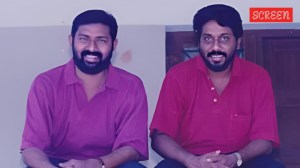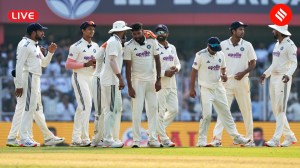General, leave this Turkey wishbone alone
Turkey's latest political crisis should serve as a lesson for those in Pakistan who expect stability as a result of a military-dictated cons...

Turkey’s latest political crisis should serve as a lesson for those in Pakistan who expect stability as a result of a military-dictated constitution and the creation of a National Security Council. The government of ailing Prime Minister Bulent Ecevit is on the brink of collapse as a result of defections. The economy has shrunk by 9.4% in the last one year alone. Fresh general elections are likely to result in another weak coalition along with a strong showing by Islamic politicians. Turkish commentators are increasingly pointing out the failure of the country’s controlled democracy.
Elimination of the Islamists from the political scene, along with a rigid view of Turkish national interest, has been the justification for three military interventions in 1960, 1971 and 1980. Turkey is unable to join the European Union because its establishment’s definition of national interest conflicts with Europe’s criteria for admission. Continued instability undermines Turkey’s economic performance. Economic weakness feeds political instability, and the vicious circle goes on.
General Musharraf’s supporters have often cited Turkey’s example to justify his constitutional changes by decree. Pakistan’s constitution will no longer remain that of a parliamentary democracy after the introduction of powers General Musharraf envisages for himself as President and for his National Security Council. Like Pakistan, Turkey has also experienced intermittent civilian and military rule. Its present constitution was written by General Kenan Evren after his coup of 1980, in a manner and style similar to the one adopted by General Musharraf. But that constitution has provided neither political stability nor stable civil-military relations to Turkey.
The Turkish experience proves that resilient politicians with political support do not wither away easily and the military cannot sort out things on a long-term basis. Politics is hardball. It is played in the streets and in the hearts and minds of people. It cannot be neatly sorted out according to someone’s plans, however logical these might seem on paper.
|
Turkey’s generals want to reserve to themselves the right of defining national interest. Turkey sees any overt practice of Islam as anti-secular. This has resulted in the absurd situation where a woman MP in any European country can wear a headscarf if she likes but a Turkish woman MP who does the same loses her seat in the legislature |
Conventional wisdom in Turkey and Pakistan holds that the military’s intervention in politics is caused by the poor quality of the country’s politicians. Perhaps it is time to argue the reverse. The reason the two countries have bad politicians is because the military intervenes every now and then, undermining the political process each time and depriving the people of a chance to assess their leaders’ performance. Turkey has seven intelligence services that dabble in the country’s politics, disturbing the equilibrium.
Turkey’s political history has interesting parallels with Pakistan. After three military interventions and an equal number of constitutions, Turkey has learnt that there is no substitute for political compromise under stable institutions allowed to function independently.
Under General Evren, laws were made to govern the functioning of political parties. A constitutional court was created to ensure adherence to fundamental law. A National Security Council emerged as the institutional mechanism for communicating the military’s concerns to elected governments. And initially General Evren stayed on as President to act as an ‘over-watch’, to use General Musharraf’s recently coined phrase.
Evren’s military government disqualified the leading Turkish politicians of the time from politics for five to ten years. Elections were then held three years later, with brand new political parties in the arena and fresh faces at their helm. The three most prominent leaders ousted from politics by the military — Bulent Ecevit, Suleyman Demirel and Necmettin Erbakan — all returned to the political scene at the end of their disqualification terms. Ironically, each one of them became Prime Minister under the military’s constitution.
|
Turkey’s political history has interesting parallels with Pakistan. Under General Evren, laws were made to govern political parties, a National Security Council emerged to communicate the military’s concerns to elected governments. And Evren stayed on as President to act as an ‘over-watch’, to use Musharraf’s newly coined phrase |
Demirel was even elected President of the Turkish republic. Before thinking that he will be able to re-write the rules of Pakistani politics forever, General Musharraf should see General Evren’s legacy in tatters in the country where he spent part of his childhood.
Turkey’s real problem is that its generals want to reserve to themselves the right of defining national interest and they exercise that right frequently. The establishment-defined ideology of state sees any overt practice of Islam as anti-secular. This has resulted in the absurd situation where a woman member of parliament in any European country can wear a headscarf if she likes but a Turkish woman MP doing the same loses her seat in the legislature. Similarly, any concessions to a Kurdish identity or to accommodation over the Cyprus issue are considered outside the scope of political debate.
In the words of Turkish editor Ilnur Cevik, ‘‘For several decades those who have ruled Turkey as a coalition of various power centres have set certain guidelines. One of these guidelines was the National Security Concept, which defined internal and external threats. There is widespread belief these days that the National Security Concept was abused. It was used to target opponents of the system and dissidents rather than aim at real internal threats.’’
As General Musharraf prepares for elections in October, he should heed that advice in Pakistan as well. A general election, by definition, should offer the electorate an opportunity to choose its leaders and the elected leaders must have the right to choose their policies without fear of behind-the-scenes machinations. Democracy is about accepting the people’s will, not about managing or controlling their support. Turkey’s history proves the inadequacy of establishment-imposed politics.
(Husain Haqqani is a Visiting Scholar at the Carnegie Endowment for International Peace in Washington. He served as adviser to Nawaz Sharif and Benazir Bhutto and as Pakistan’s Ambassador to Sri Lanka)





- 01
- 02
- 03
- 04
- 05


























